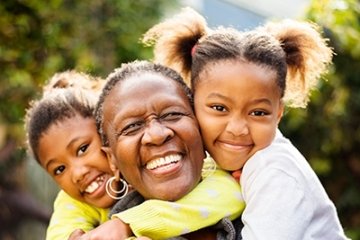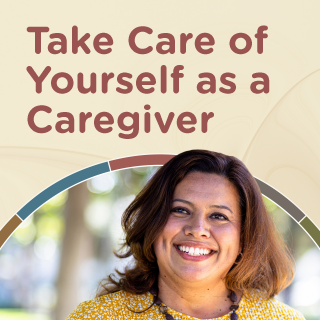Grandfamilies and Kinship Families: Caring for Young Relatives
Many older adults are caregivers for their grandchildren or other young relatives. In the United States, more than 2.7 million children are currently being raised by older family members. These kinds of families are often called grandfamilies, in the case of grandparents and grandchildren, or kinship families more generally.
If you’re an older adult raising a young relative, it may feel overwhelming at times. This article provides suggestions for taking care of yourself as well as ways to find help and support.
What do kinship families look like?
Kinship families form when a grandparent, older relative, or close family friend becomes a child’s primary caregiver because the parents are unable or unwilling to take care of the child. In some cases, the caregiver has a legal relationship to the child, such as legal custody or guardianship. In other cases, the arrangement is more informal. The situation may be temporary or last a long time.
Benefits and challenges of caring for young relatives
Grandfamilies and kinship families can have benefits for both children and caregivers. For young people, being raised by an older relative can provide a safe, supportive, and stable home and help them maintain ties to their extended family and community. For caregivers, raising grandchildren or other young relatives can bring feelings of satisfaction, pride, and significance.
Becoming a caregiver for a child later in life can also come with challenges and sacrifices. The responsibilities of kinship care can affect a person’s physical, mental, and financial well-being. That’s why caregivers need to pay attention to their own health and wellness. For example, it’s important to see a health care professional regularly, get enough rest, take time for physical activity, and connect with friends and family.
Caregivers frequently put their own needs aside for the child they are raising. But give yourself credit for everything you’re doing. Your caregiving makes a difference in someone else’s life.
Getting help
Grandfamilies and kinship families need information and support to be successful. These online resources are a good place to start:
- Resources for relative and kinship caregivers from the Child Welfare Information Gateway
- Legal, financial, and other support resources for grandfamilies from the Grandfamilies State Law and Policy Center
- Resources for grandfamilies in each state from Grandfamilies.org
- A list of Kinship Navigator programs in each state
Federal, state, and local governments offer programs to help grandfamilies and kinship families. Additional information and resources may be available through local senior centers, school systems, health departments, and Area Agencies on Aging.
You may also be interested in
- Learning about ways to take care of yourself as a caregiver
- Sharing an infographic on ways to care of yourself when caring for others
- Finding out more about respite care
Sign up for e-alerts about healthy aging
For more information for caregivers in grandfamilies and kinship families
Eldercare Locator
800-677-1116
eldercarelocator@USAging.org
https://eldercare.acl.gov
The Child Welfare Information Gateway
800-394-3366
info@childwelfare.gov
www.childwelfare.gov/topics/outofhome/kinship
Medicaid
877-267-2323
866-226-1819 (TTY)
Medicaid.gov@cms.hhs.gov
www.medicaid.gov
ARCH National Respite Network and Resource Center
703-256-2084
www.archrespite.org/
This content is provided by the NIH National Institute on Aging (NIA). NIA scientists and other experts review this content to ensure it is accurate and up to date.
Content reviewed:
July 06, 2023




